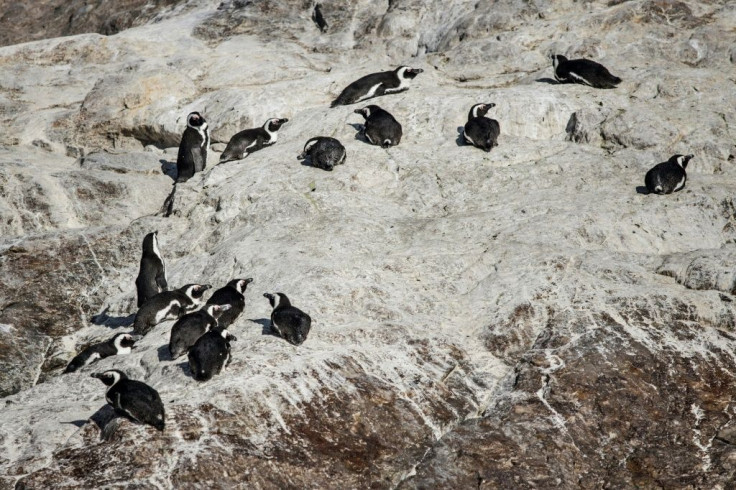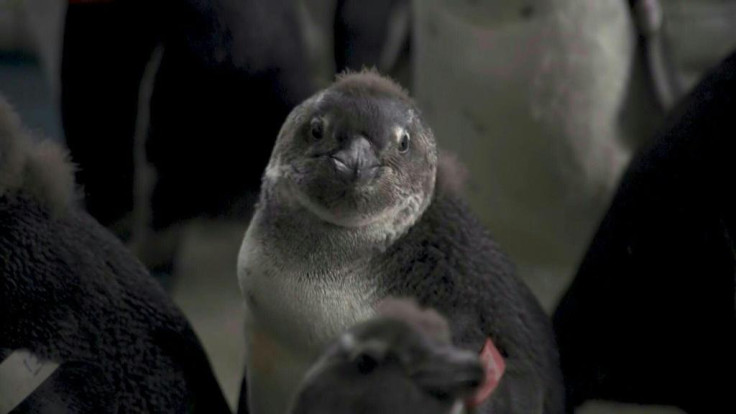Why A Swarm Of Bees Killing 60 Penguins Is A Serious Concern

Conservationists in South Africa came across a grisly scene Monday when they discovered 63 dead African Penguins at a wildlife colony in Simonstown, located outside of Cape Town.
The cause of death? Bee stings.
According to conservationists who conducted a postmortem of the penguins, their bodies were covered with bee stings that were concentrated around their eyes and flippers. These are the parts of the bird that lay most exposed and one individual was found to have been stung 27 times alone.
Dr. Alison Kock, a marine biologist with South Africa's national parks agency, said that the penguins and bees "co-exist" in their shared habitat. However, she speculated that something may have disturbed the bees where they made their nest and the flock of penguins bore the consequences.
"The bees don't sting unless provoked - we are working on the assumption that a nest or hive in the area was disturbed and caused a mass of bees to flee the nest, swarm and became aggressive," Kock told BBC News.
The honey bees’ sting can be deadly, especially when they are attacking as a swarm.
Dr. Katta Ludynia, from the Southern African Foundation for the Conservation of Coastal Birds, said that the amount of stings endured by the penguins would have "probably been deadly for any animal of that size."
Jenny Cullinan of the African Wild Bee Institute added that the bees leave behind a pheromone that lets a target they stung be tracked by other members of the swarm defending a nest.

Cargo ships refuel within five kilometers of the world's largest breeding colony of African penguins, near the South African city of Port Elizabeth. But the species' numbers have dwindled in the tourism hotspot, raising alarms among environmental experts despite assurances from the government and maritime companies that the practice is safe. Photo: AFPTV / Maryke VERMAAK
African Penguins are considered endangered largely because of overfishing in their habitats. The birds are estimated by the International Union for Conservation of Nature’s Red List of Threatened Species to number close to 41,700 individuals as of 2019, but their numbers are declining.
Other conservationists say that the loss of so many penguins in one incident is a dangerous blow to the resident colony at Boulders Beach. According to the South African National Parks, there are a total of 2,200 penguins living in the colony. David Roberts, a clinical veterinarian from the foundation, told Agence France- Presse that the penguin population could not easily take so many losses at once.
"The penguins... must not die just like that as they are already in danger of extinction. They are a protected species," Roberts said.
In South Africa, they inhabit the coastal regions on both the Atlantic and Indian Ocean ends of the country. Populations can also be found in Mozambique, Angola and Nambia.





















